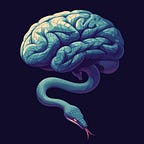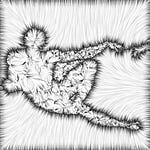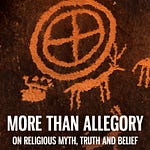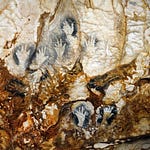Vectors of Mind has been around for two years now, and there’s quite a bit of content that builds on itself. Enjoy this 90 minute monologue where I describe each article chronologically, and give some meta-level commentary.
Show notes
Origin: Dissertation in electrical engineering on psychometrics and machine learning
Used Facebook's My Personality Dataset with millions of users' personality tests and Facebook statuses
Explored transfer learning to predict traits like IQ from limited data
Dataset closed due to Cambridge Analytica connection
Shifted focus to fundamental questions about language and personality constructs
Discovered mathematical equivalence between Big Five derivation and word vectors from the 1930s
Argues for comparing psychological constructs in word space rather than psychometric space
Proposes studying personality directly in linguistic space without creating new scales
Example: Comparing altruism and openness to experience using word vectors
Critiques traditional method of creating separate scales and correlating them
Suggests possibility of doing personality science directly in word space without surveys
Exercise in naming and interpreting factors derived from lexical studies
Reflects on the process of identifying personality factors from data
Compares to original Big Five researchers' process of naming factors
Mentions people in comments did well at guessing factors
Discusses the first unrotated factor in personality models
Connects to evolutionary psychology and theory of mind
Argues this factor is about considering others and modeling their desires
Relates to the concept of living the golden rule
Introduces idea of factor as map of societal pressure
Explores how reciprocal altruism might have produced "voices of the gods"
Introduces Julian Jaynes' ideas on bicameral mind
Speculates on proto-language of superego before full language
Connects to the concept of conscience evolving over time
Proposes "I am" as the first recursive thought
Suggests women were vanguard of consciousness development due to evolutionary roles
Connects to Genesis and other creation myths
Discusses potential timeline for development of self-awareness
Explores role of psychedelics in precipitating self-awareness
Explores snake symbolism in creation myths worldwide
Hypothesizes snake venom as an entheogen in early consciousness rituals
Discusses pharmacological properties of snake venom and potential psychoactive effects
Connects snake myths to development of agriculture
Mentions reception on Reddit and by Scott Alexander
Provides more evidence for people getting high on snake venom
Discusses known effective antivenoms
Investigates pronoun similarities across languages
Argues for recent spread of self-awareness concepts
Critiques theories proposing very ancient origins for pronouns
Discusses work by linguist Merritt Ruhlen on global pronoun similarities
Comparative study of personality factors across English, Spanish, French, Russian, Turkish, Persian
Describes it as better than most papers in personality psychology
Notes it received little attention on Substack
Experiment asking ChatGPT to fill out personality inventories
Conducted in chat window without using API
Received more attention than the cross-cultural personality study
Deja-you, the recursive construction of self
Explores the concept of recursion in relation to consciousness and self-awareness
Discusses how often recursion comes up in theories of consciousness and language
Mentions Douglas Hofstadter's "I Am a Strange Loop" and its focus on recursion
Reflects on the paradox of consciousness and its connection to recursion
Explores the idea of "I am" as potentially the first recursive thought
Discusses how this connects to the broader Eve Theory of Consciousness
Explores various theories about the timeline of recursion evolution
Discusses early dates for recursion, going back as far as 2 million years ago
Mentions the concept of the "Uncanny Valley" in human evolution
Reflects on the challenges of pinpointing when recursive thinking emerged
When did recursion evolve? (part 2)
Covers theories about recursion emergence from 200,000 years ago to present
Discusses Noam Chomsky's theory of a single mutation enabling recursion
Explores the concept of Behavioral Modernity and its timeline
Mentions the Sapient Paradox and debates about when fully human behavior became widespread
Eve Theory of Consciousness v2
Updated version focusing on gendered evolution of recursion
Emphasizes sex dynamics and recursion more than previous version
Discusses genetic evidence potentially supporting the theory
Mentions 17 times less variability in Y chromosome compared to X chromosome 6,000 years ago
Reflects on how this fits with Eve Theory of Consciousness
The AI basis of the Eve Theory of Consciousness
Similar exercise as the podcast, showing how questions about language and personality eventually led to the Eve Theory of Consciousness
The Immortality Key forgets that Jesus was Jewish
Argues Brian Muraresku's book downplays the Jewish continuity between the Old and New Testament
Argues against the idea that stories can last 100,000 years
Argues that the mystery of recursion and sapience is related to selection on the primary factor of personality
States that the primary factor or general factor of personality is correlated about 0.9 with emotional intelligence
Suggests that emotional intelligence is at the heart of human intelligence
Evidence for global cultural diffusion
Examines evidence for worldwide cultural spread
Discusses snake myths, the Seven Sisters of the Pleiades, and bullroarers
Uses dog domestication as an example of proven cultural diffusion
Why did male initiation rituals diffuse globally?
Discusses research into male initiation rituals across cultures
Suggests this could be related to the Y chromosome bottleneck
Proposes that geneticists studying the Y chromosome bottleneck should consider these rituals
Eve Theory of Consciousness v3.0
Comprehensive 100-page explanation of the fully developed theory
Described as best work, setting up language to explain other directions
Reflects on theory's consistency and development over time
Herakles, Adam, and Krishna were initiated in the snake cult at Göbekli Tepe
Connects mythological figures to proposed snake cult rituals
Discusses astronomical significance, particularly the constellation Hercules
Speculates on ritual elements at Göbekli Tepe
Archeologists vs Ancient Aliens
Critiques both archaeological conservatism and ancient alien theories
Discusses potential connections between Australian Aboriginal and Near Eastern cultures
Reflects on academic reluctance to consider diffusion theories
Mentions bullroarer findings at Göbekli Tepe
Explores the "squatter" figure in ancient art across cultures
Mentions finding this figure in various contexts, including Great Lakes rock art
Examines potential connections between Genesis and the Symbolic Revolution
Discusses professional risks for archaeologists in exploring these connections
Mentions Göbekli Tepe's FAQ addressing biblical connections
Explores Armenian folklore connecting snakes to medicinal knowledge
Questions why snakes are associated with medicinal knowledge in many cultures
Recap of presenting the Snake Cult theory at a LessWrong conference
Mentions receiving negative questions, particularly about Australian connections
Broader application of Eve Theory to explain the Sapient Paradox
Discusses alternative explanations for the spread of human cognition
Aims to make the theory more palatable without snake cult specifics
Comprehensive history of the bullroarer in various cultures
Argues for cultural diffusion based on bullroarer similarities
Describes it as best resource on bullroarers available
Reflects on academic neglect of bullroarer research
Critiques the book's timeline for the evolution of religion
Discusses challenges in dating cognitive and cultural developments
Notes the book's tendency to push important developments far into the past
Discusses recent genetic evidence for cognitive evolution
Reflects on how this might support or challenge the Eve Theory
Mentions David Reich's recent interview and preprint
Explores Efe creation myths from the Congo
Discusses similarities to Genesis and implications for consciousness theories
Expresses surprise that Jaynesian researchers haven't found this myth














